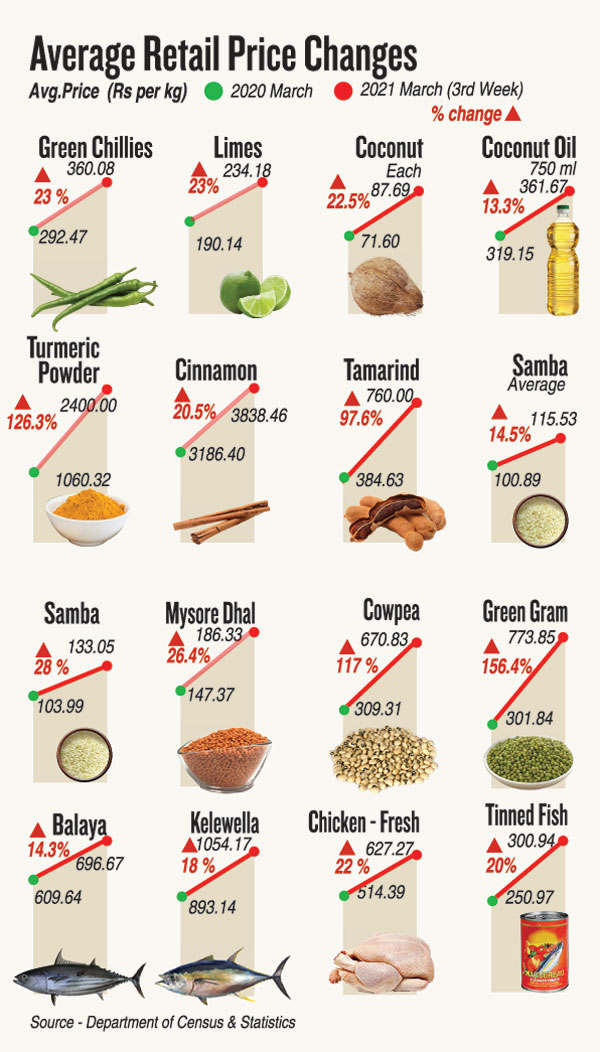News
Avurudu mung kavun won’t come cheap as prices leap
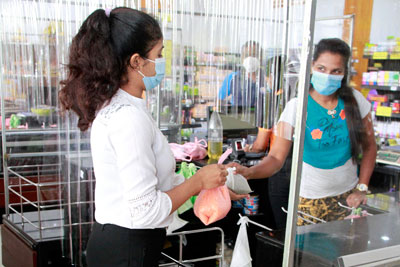
A shopper purchases green gram. Pic by Indika Handuwala
From green gram used in Avurudu kevili to rice, coconut, turmeric and other goods used widely during festive season are jumping in price with the National New Year around the corner.
Green gram, used for making the popular sweetmeat, mung kavun, and other festival favourites, has seen the biggest increase – from Rs. 300 a kilo last March to an average Rs. 770. In some markets, the price has shot up to Rs. 900, and traders predict prices would continue to rise in coming days, provoking comments that some families might be forced to forego mung kavun this year for the Avurudu table.
Raw rice, both red and white, was sold below Rs. 100 a kilo last year but now costs Rs. 110-120 while prices of the nadu and samba varieties have risen by Rs.15-30.
According to the Census and Statistics Department, the price of a kilo of samba (grade I) is Rs. 140 this week although it was Rs. 103 during the Avurudu season last year. But consumers say there is a shortage of samba in the market and as a result the prices have gone up to Rs.180 a kilo.
“Compared to the same period last year, the current prices of samba grade I, nadu grade I, raw red and raw white varieties have increased by 41 percent, 14 percent, 6 and 6 percent respectively,” the Hector Kobbekaduwa Agrarian Research and Training Institute (HARTI) said.
Coconuts cost Rs. 90-120 a nut. Twelve months ago, they only cost Rs. 70-80.
Coconut oil that was Rs. 319 (750 ml) last year is now sold at Rs. 330-400.may
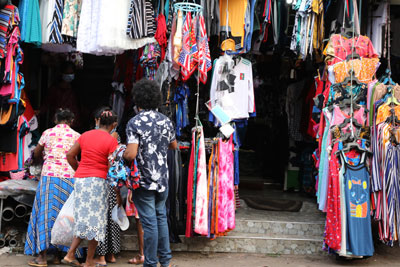
Avurudu shoppers examine goods Pic by M A Pushpa Kumara
“Compared to the same period last year, prices of all the types of pulses have increased by about 34-152 percent with the highest increase for green gram,” HARTI said, adding that the price hike was largely due to a supply shortage.
“Pandemic-related processing delays affected the supply chain, leading to price increases,” Agriculture Department economist Chamara Wijesinghe said.
The increase in rice prices are partly due to monopoly, he said.
Spices and condiments have also become costly. A kilo of dried turmeric, Rs. 1,060 last year, is now sold at an average Rs. 2,400 with the price ranging from Rs. 1,000-2,800 depending on quality. Last week, turmeric went up to Rs. 3,000.
Goraka prices are going up to Rs. 800 per kilo when it was below Rs. 600 last year. Tamarind has almost doubled in price from Rs. 384 a kilo this time last year to Rs. 760 and above.
Cinnamon, Rs. 3,186 a kilo last year can now range up to Rs. 5,000. Maldive fish ranges from Rs. 1,700-2,400 when it was just Rs. 1,800 per last March.
All-Ceylon Farmers’ Federation leader Namal Karunaratne said farmers, daily wage earners and many who have lost their jobs here and overseas due to the pandemic would not be feeling festive this New Year.
“In villages, remittances from the Middle East are usually high during this period but this year they have come down drastically due to job losses,” Mr. Karunaratne added.
“Although prices of goods have increased, it is rarely that farmers benefit from this,” he added.
Traders see little hope after a year of pandemic-caused losses.
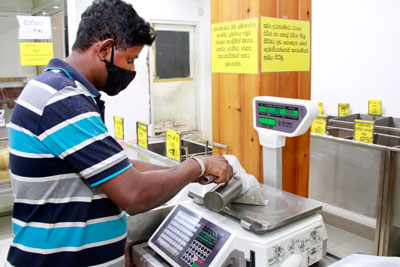
When every gram counts
“Our members complain about loss of sales this year. We are helpless when people have no money,” Essential Food and Commodities Importers and Traders’ Association (EFCITA) President G. Rajendran said. Importers were being hit both by foreign exchange fluctuations and losses from unsold perishable food items.
“Many people suffered from pandemic-triggered pay cuts and have no New Year bonus. Though we might not have zero losses like last year, people are still struggling,” S. Bandula, a textile shop owner in Pamunuwa, said.
Kamani Ranaweera, a housewife from Ratmalana, agreed this New Year was going to be a struggle.
“With no Avurudu bonus this year, my husband and I decided to limit the number of kevili preparations, and to only buy new clothes for the children,” she said.
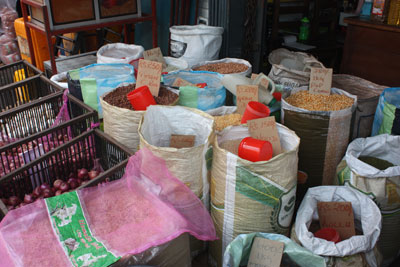
Price hikes on goods may force consumers to forego certain food items Pic by Nilan Maligaspe
D. Saman, a grocery shop owner from Piliyandala, said he is stocking up commodities that are in high demand during the festive season.
“There is a possibility of prices increasing in the coming days, and shortages, too. Some known customers have placed orders for items to be purchased when they receive their salaries,” he said.
The Consumer Affairs Authority said the public may lodge complaints about errant traders by dialling its hotline, 1977. It promised daily raids would take place to ensure expired goods are not put on sale and to discourage traders from charging exorbitant prices for goods.
